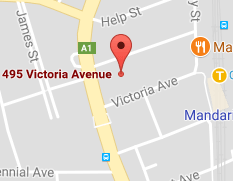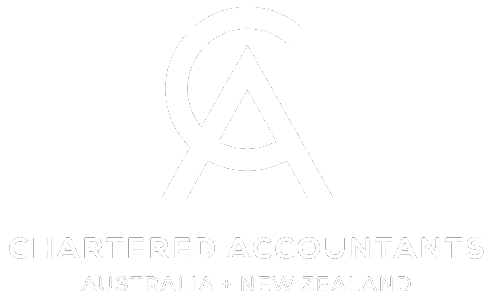On Tuesday, 25 October 2022, Treasurer Jim Chalmers handed down the 2022-23 October Federal Budget. As with all Budgets, these are announcements only and have not been legislated. The details are still to be worked through, and both Houses of Parliament need to pass legislation before the announcements take effect.
There are no major tax, business or superannuation changes to be introduced as a result of this budget. The key personal, business-related and superannuation tax highlights are summarised below:
1. PERSONAL TAXATION MEASURES
No changes to personal income tax rates.
The Budget did not announce any changes to the Stage 3 personal income tax cuts that are set to commence from 1 July 2024. The current financial year (2022-2023) and Stage 3 rates and thresholds will therefore be as follows:
|
Rate |
2022-23 to 2023-24 |
From 1.7.2024 (unchanged) |
|---|---|---|
|
Nil |
$0 - $18,200 |
$0 - $18,200 |
|
19% |
$18,201 - $45,000 |
$18,201 - $45,000 |
|
30% |
N/A |
$45,001 - $200,000 |
|
32.5% |
$45,001 - $120,000 |
N/A |
|
37% |
$120,001 - $180,000 |
N/A |
|
45% |
$180,001 + |
$200,001 + |
|
Low and middle income tax offset (LMITO) |
N/A |
N/A |
|
Low income tax offset (LITO) |
Up to $700 |
Up to $700 |
Low income tax offsets - LMITO not extended to 2022-23
This Budget did not announce any extension of the low and middle income tax offset (LMITO) to the 2022-23 income year. The LMITO has now ceased and been fully replaced by the low income tax offset (LITO).
2. BUSINESS TAXATION MEASURES
FBT and import tax exemptions for electric vehicles
From 1 July 2022 newly acquired electric cars will be exempted from FBT and import taxes if they are below the luxury car tax threshold for fuel efficient vehicles ($84,916 for 2022-23).
The measure covers battery, hydrogen fuel cell and plug-in hybrid cars.
The exemption from FBT will encourage those interested in upgrading to an electric car to use salary packaging measures offered by their employer.
Intangible assets depreciation: option to self-assess effective life dropped
The Government will not proceed with the proposal to allow taxpayers to self-assess the effective life of intangible depreciating assets.
The measure was announced in the 2021-22 Budget and was to apply to assets acquired from 1 July 2023. This means that effective lives of intangible depreciating assets will continue to be set by statute, ie reversing this decision will maintain the status quo.
3. SUPERANNUATION AND RETIREMENT MEASURES
SMSF residency changes delayed
The Government confirmed that the changes to the SMSF residency rules, previously announced in the 2021-22 Budget to commence from 1 July 2022, will now start from the income year commencing on or after the date of assent of the enabling legislation (yet to be introduced).
These measures propose to relax the SMSF residency rules by extending the central management and control test safe harbour from 2 to 5 years and removing the active member test for both SMSFs and small APRA funds.
Super downsizer contributions eligibility age reduction to 55 confirmed
The Government confirmed its election commitment that the minimum eligibility age for making superannuation downsizer contributions will be lowered to age 55 (from age 60).
The proposed reduction in the eligibility age will allow individuals aged 55 or over to make an additional non-concessional contribution of up to $300,000 from the proceeds of selling their main residence outside of the existing contribution caps (subject to existing qualifying criteria).
Assets test exemption for 2 years; deeming rates frozen
The Government also confirmed its election commitments that seek to assist pensioners looking to downsize their homes, by:
- extending the social security assets test exemption for principal home sale proceeds from 12 months to 24 months.
- changing the income test to apply only the lower deeming rate (0.25%) to principal home sale proceeds when calculating deemed income for 24 months after the sale of the principal home.
4. OTHER MEASURES
Digital currencies not foreign currency
The Budget Papers confirm that the Government is to introduce legislation to clarify that digital currencies (such as Bitcoin) continue to be excluded from the Australian income tax treatment of foreign currency. The measure has already been released in draft legislation.
This will maintain the current tax treatment of digital currencies, including the Capital Gains Tax treatment where they are held as an investment.
The exclusion does not apply to digital currencies issued by, or under the authority of, a government agency, which continue to be taxed as foreign currency.
Paid parental leave to be expanded
The Government will expand the Paid Parental Leave (“PPL”) scheme from 1 July 2023 so that either parent is able to claim the payment and both birth parents and non-birth parents are allowed to receive the payment if they meet the eligibility criteria. Parents will also be able to claim weeks of the payment concurrently so they can take leave at the same time.
From 1 July 2024, the Government will further expand the scheme by 2 additional weeks a year until it reaches a full 26 weeks from 1 July 2026. Both parents will be able to share the leave entitlement, with a proportion maintained on a "use it or lose it" basis, to encourage and facilitate both parents to access the scheme and to share the caring responsibilities more equally. Sole parents will be able to access the full 26 weeks.
Further changes to legislation will also support more parents to access the PPL scheme. Eligibility will be expanded through the introduction of a $350,000 family income test, which families can be assessed under if they do not meet the individual income test. Single parents will be able to access the full entitlement each year. This will increase support to help single parents juggle care and work.
Child care measures. Increased Child Care Subsidy (“CCS”) rate for household income up to $530,000
The Government will provide funding to deliver cheaper child care with the objective of reducing barriers to workforce participation. This will be achieved by:
- increasing the maximum CCS rate from 85% to 90% for families for the first child in care and increase the CCS rate for all families earning less than $530,000 in household income. From July 2023, CCS rates will lift from 85% to 90% for families earning less than $80,000. Subsidy rates will then taper down one percentage point for each additional $5,000 in income until it reaches 0% for families earning $530,000. Families will continue to receive existing higher subsidy rates for their second and subsequent children aged five and under in care, up to 95%.
- maintaining current higher CCS rates for families with multiple children aged 5 or under in child care, with higher CCS rates to cease 26 weeks after the older child's last session of care, or when the child turns 6 years old.
The above summary is a very small snapshot of the 2022-2023 Federal budget. If you would like to know more about any of the above or any other matters concerning this budget please contact your StewartBrown Manager or Partner for assistance.



